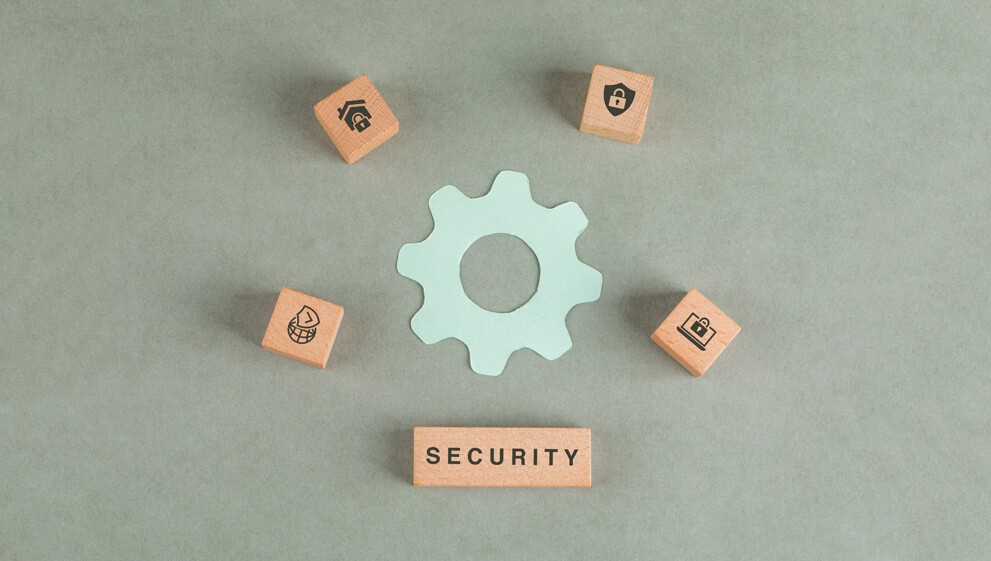Cookies play a crucial role in enhancing our web browsing experience. These small pieces of data, stored by web browsers, help websites remember user preferences and login details and provide personalized content.
However, cookies in web browsers pose potential security risks. Malicious entities can exploit them to track user activity, leading to privacy concerns and vulnerabilities.
Hence, users must be equipped with essential tools to manage cookie settings and ensure safe browsing. By understanding how to enable cookies in Chrome securely, clear cookies on iPhones, and block third-party cookies, one can ensure a safer online environment.
In this blog, we will delve into what cookies are, their benefits, potential risks, and how antivirus solutions help mitigate these risks, ensuring that cookies on your PC remain secure.
What are Cookies?
Cookies are small text files stored on your device by websites you visit. They contain information about your interactions with the site, such as login details, preferences, and browsing history. Cookies in browsers are essential for providing a personalized web experience, allowing websites to remember you and tailor content accordingly.
Cookies web browsers use can be categorized into several types, each serving different purposes:
- Session Cookies: These are temporary cookies that are deleted when you close your browser. They help websites keep track of your session, such as keeping you logged in as you navigate through different pages.
- Persistent Cookies: These cookies remain on your device for a set period, even after you close your browser. They store information such as login credentials and preferences, making it easier to access websites without re-entering information.
- Third-Party Cookies: These cookies are placed by websites other than the ones you are visiting. They are commonly used for tracking user behavior across multiple sites for targeted advertising.
Cookie Security Risks
While cookies offer numerous benefits, they also present several security risks that can impact both personal and organizational data. Understanding these risks is crucial for maintaining privacy and security.
Common Threats Associated with Cookies
Here are a few threats associated with cookies:
- Tracking and Profiling: Third-party cookies can track your browsing habits across multiple websites, creating detailed profiles of your online behavior. This data can be used for targeted advertising or sold to other entities.
- Cookie Hijacking: Also known as session hijacking, this occurs when an attacker intercepts your cookies to gain unauthorized access to your accounts. This can happen through man-in-the-middle attacks or exploiting vulnerabilities in websites.
- Malicious Cookies: Some cookies can be used maliciously to steal sensitive information or inject harmful scripts. While cookies are not viruses, they can be used as vectors for cyber attacks.
Cookie security breaches can have significant impacts on both personal and organizational data. For individuals, these breaches can result in unauthorized access to personal information such as login credentials, email addresses, and browsing history, potentially leading to identity theft, financial loss, and compromised online accounts.
For organizations, the consequences can be even more severe, including data leaks, intellectual property theft, and damage to the company’s reputation. Unauthorized access to employee accounts can exacerbate these issues, highlighting the need for secure cookie practices to protect sensitive user data.
How Antivirus Software Enhances Cookie Security
Antivirus software plays a crucial role in enhancing cookie security by providing tools and features that help manage and protect cookies. Quick Heal, for instance, offers several functionalities to ensure cookie security. It helps in monitoring and managing cookie settings, blocking third-party cookies, and detecting cookie viruses.
Quick Heal can also scan for potentially dangerous cookies and provide alerts for suspicious activities. By enabling these features, users can enhance their privacy and secure their personal information from unauthorized access.
Benefits of Using Antivirus Software for Cookie Management
Using antivirus software for cookie management offers numerous benefits:
- Enhanced Privacy and Data Protection: Antivirus software can help clear cookies, manage cookie settings, and block third-party cookies, ensuring that your data remains private and secure.
- Prevention of Unauthorized Tracking and Data Collection: By blocking third-party cookies and tracking cookie viruses, antivirus software can prevent unauthorized entities from collecting your browsing data.
- Protection Against Cookie-related Cyberattacks: Antivirus programs can detect and remove cookie viruses, protecting your device from potential cyber threats.
Best Practices for Cookie Security
To safeguard your personal information and enhance your browsing experience, follow these best practices for cookie security:
Clean Out the Cookie Jar
Regularly clearing your cookie cache is crucial for maintaining privacy and security. Knowing how to delete cookies on computers and mobile devices ensures that old or potentially harmful cookies are removed. This can be done through browser settings, where you can clear cookies on iPhone, enable cookies in Chrome, and adjust cookie settings to your preference.
Turn Off Autofill Features
Autofill features in browsers can be convenient but they are risky, as they store sensitive information that unauthorized users can access. Turning off autofill and using a password manager instead can enhance security. Password managers store your login credentials securely and help create strong passwords, reducing the risk of unauthorized access.
Enable Multi-factor Authentication
Using strong passwords and enabling multi-factor authentication (MFA) adds an extra layer of security to your accounts. MFA requires additional verification steps, making it harder for attackers to gain access even if they manage to obtain your password.
Lock Down the Cookie Jar with Quick Heal!
Cookies play a significant role in enhancing the web browsing experience, but they also pose potential risks that must be managed effectively. Cookie security is vital for protecting personal and organizational data from unauthorized access and cyber threats.
Antivirus software, like Quick Heal Total Security, offers essential tools and features to manage cookie settings, block third-party cookies, and protect against cookie-related threats. By regularly clearing cookies, adjusting cookie settings, and using robust antivirus solutions, users can ensure their data remains secure and their browsing experience safe.
Quick Heal Total Security, priced at Rs. 1591, provides comprehensive protection, making it an excellent choice for anyone looking to enhance their cookie security and overall online safety.


